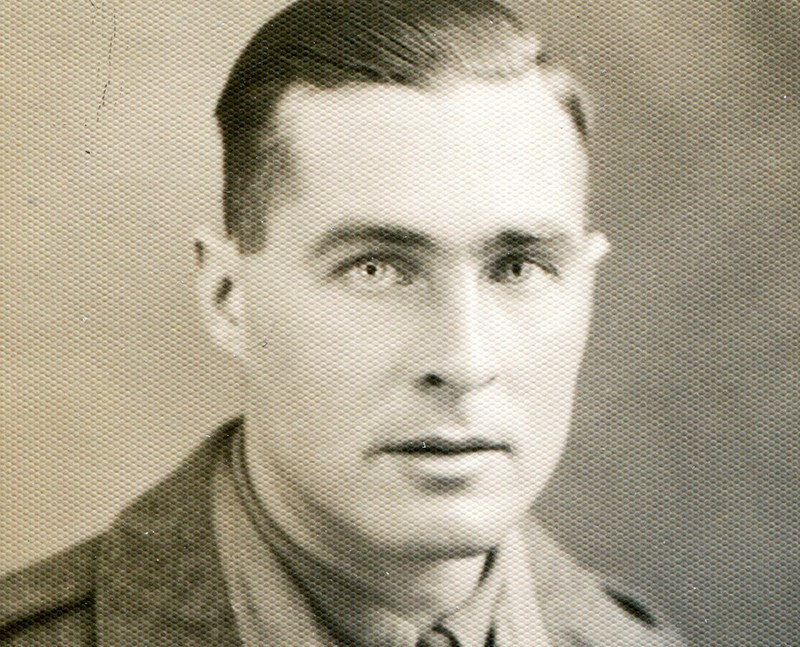Tom Slater & Tom St. Amand
Peter Leighton was once asked if he wanted to watch the epic war film Saving Private Ryan. He declined.
Why, after all, would the 96-year-old veteran of the Second World War want to watch Hollywood’s re-enactment of the D-Day landing when he was there for the real thing on June 6, 1944?
The Sarnia man remembers the war well but has been reluctant to discuss it.
“I have seen things you don't want to know about, and things I don't want to think about,” he has told his family.
Nevertheless, the family believes the time has come for the story to be told.
Peter Leighton was born in Winnipeg in 1922 and enlisted at age 21. He didn't weigh enough to become a paratrooper and so joined the infantry with the famed Royal Winnipeg Rifles, nicknamed “The Little Black Devils.”
He was an excellent marksman and became the shooter in a two-man unit operating a Bren machine gun. The lethal backbone of the infantry, the gun weighed 11 kilograms, fired 500 rounds per minute and had an effective range of half a kilometre.
His friend, Private John Winzoski, carried the gun and ammo and Leighton aimed and fired it.
On D-Day, Private Leighton felt nervous as his landing craft approached Juno Beach, knowing he was about to see his first action.
A member of D company, he landed west of the enemy’s strong point and got off the beach quickly. The Canadians cleared a path through a minefield at La Vallette and liberated the French village of Graye-sur-Mer.
Private Leighton and D Company battled their way through Normandy all that summer, part of a campaign to clear the coastal areas of northern France and Belgium. By Nov. 8 “The Little Black Devils” had helped win the five-week Battle of the Scheldt in northern Belgium and northwestern Netherlands.
Many of Leighton's friends were killed in the heavy fighting but there was little time to grieve. Each new day, it seemed, brought another battle.
By April the Canadians were beginning the liberation of the Netherlands. For 10 months Leighton had surviving enemy artillery, tanks, mortars, and machine gun fire when, on April 28, he was shot.
It happened as D Company was clearing Driever, Germany. A few Canadians were resting in a house that afternoon when a German soldier fired a bullet that ripped through the outside wooden door and hit Leighton above the right knee. He recalls being lifted onto a stretcher and was told later the German soldiers were caught.
The war ended a week later, and following knee surgery, Leighton came to Sarnia to be with his parents, who had moved to the city in 1942.
A new life was beginning. He met his wife, Donajeane, on a blind date in 1950 and married her two years later. Together they raised five children in their home on Sycamore Drive.
Leighton, who worked at Autolite (later Prestolite), rarely spoke about the war and never attended Remembrance Day services. He tucked away his uniform, cap badges and shoulder flashes and lost contact with his fellow soldiers, including John Winzoski.
“War was a painful time with so many friends dying. He tried his best to block it out,” Donajeane explained.
Instead, he took up bowling and umpired baseball and fastball for decades. Eight grandchildren and sixteen great-grandchildren kept the couple busy.
More than one million Canadians served in the Second World War, of which fewer than 50,000 remain.
Leighton has made it clear he doesn’t regard himself a hero, but family friend Nick Vanderstoop disagrees.
Vanderstoop was six years old when Canadian troops liberated the Netherlands, and in appreciation he wrote and dedicated a poem to Peter Leighton, “Ode to a Warrior.”
Two lines best capture his experience:
“Every yard an enemy, land mine or sniper, for many just too late
But they fought on bravely, those Canucks, losing mate after mate.”
